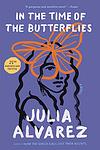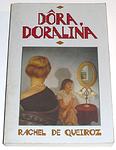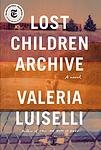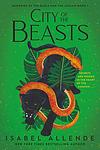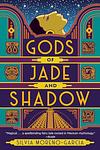The Greatest Latin American "Coming of age" Books of All Time
Click to learn how this list is calculated.
Genres
The "Coming of age" category of books typically refers to stories that explore the transition from adolescence to adulthood. These books often focus on the challenges and experiences that young people face as they navigate the complexities of growing up, including issues such as identity, relationships, sexuality, and personal growth. Coming of age stories can be set in any time period or cultural context, and may feature protagonists of any gender, race, or background. Overall, the genre offers readers a glimpse into the universal struggles and triumphs of youth, and the process of becoming a fully realized adult.
Date Range
Reading Statistics
Click the button below to see how many of these books you've read!
Download
If you're interested in downloading this list as a CSV file for use in a spreadsheet application, you can easily do so by clicking the button below. Please note that to ensure a manageable file size and faster download, the CSV will include details for only the first 500 books.
Download-
1. The Alchemist by Paulo Coelho
A young Andalusian shepherd named Santiago dreams of finding a worldly treasure and sets off on a journey across the Egyptian desert in search of it. Along the way, he encounters a series of characters who impart wisdom and help guide his spiritual journey. The novel explores themes of destiny, personal legend, and the interconnectedness of all things in the universe. The boy learns that true wealth comes not from material possessions, but from self-discovery and attaining one's "Personal Legend".
-
2. The Brief Wondrous Life of Oscar Wao by Junot Diaz
This novel tells the story of Oscar de Leon, an overweight Dominican boy growing up in New Jersey who is obsessed with science fiction, fantasy novels, and falling in love, but is perpetually unlucky in his romantic endeavors. The narrative not only explores Oscar's life but also delves into the lives of his family members, each affected by the curse that has plagued their family for generations. The book is a blend of magical realism and historical fiction, providing a detailed account of the brutal Trujillo regime in the Dominican Republic and its impact on the country's people and diaspora.
-
3. Aunt Julia and the Scriptwriter by Mario Vargas Llosa
The novel is a semi-autobiographical tale of a young man in Peru who falls in love with his divorced aunt, Julia, while working at a radio station. Their scandalous romance unfolds amidst the backdrop of a chaotic radio station run by a brilliant but unstable Bolivian scriptwriter who churns out daily soap operas. The narrative alternates between the protagonist's real life and the melodramatic world created by the scriptwriter, blending reality and fiction in a humorous and poignant exploration of love and creativity.
-
4. In the Time of the Butterflies by Julia Alvarez
In the Time of the Butterflies is a historical fiction novel that tells the story of the Mirabal sisters who were activists against the dictatorship of Rafael Trujillo in the Dominican Republic. The narrative is a blend of fact and fiction, presenting the personal lives and political involvement of the sisters, three of whom were assassinated for their roles in the resistance movement. The book explores themes of courage, sacrifice, love, and the power of women in the face of oppressive regimes.
-
5. How the Garcia Girls Lost Their Accents by Julia Alvarez
This novel follows the story of the four Garcia sisters, who are forced to flee from their home in the Dominican Republic to New York City in the 1960s due to their father's political dissent. The girls struggle to navigate the challenges of assimilation and cultural identity, as they attempt to reconcile their Dominican heritage with their new American lifestyle. The narrative explores themes of identity, family, immigrant experience, and the effects of political unrest, as the girls lose their Spanish accents and adapt to their new environment.
-
6. Dreaming in Cuban by Cristina García
"Dreaming in Cuban" is a multi-generational narrative that explores the lives of several women from a Cuban family, spanning from the 1930s to the 1980s. The story oscillates between Cuba and the United States, reflecting on the Cuban revolution, exile, and identity. Through the perspectives of each character, the novel delves into themes of political turmoil, family dynamics, and personal struggles amidst cultural shifts and geographical displacement.
-
7. Betrayed by Rita Hayworth by Manuel Puig
The novel explores the life of a young boy growing up in a small town in Argentina during the 1930s and 1940s. It is a coming-of-age story that uses a unique narrative structure, incorporating a mix of dialogues, inner thoughts, and film scripts to depict the protagonist's life. The boy's obsession with Hollywood films and glamorous actresses, particularly Rita Hayworth, serves as an escape from his oppressive environment and shapes his understanding of the world. The book also delves into themes of sexuality, identity, and the impact of popular culture.
-
8. Deep Rivers by José María Arguedas
"Deep Rivers" is a novel that follows the life of a young boy who is caught between the Spanish and indigenous cultures of Peru. The protagonist is sent to a Catholic boarding school, where he experiences the harsh realities of social and racial divisions within the country. As he navigates these challenging circumstances, he develops a deep connection with the indigenous Andean culture and its spiritual relationship with nature. The novel is a profound exploration of identity, culture, and the struggle of indigenous peoples in a colonized society.
-
9. A World for Julius by Alfredo Bryce Echenique
"A World for Julius" follows the life of Julius, a young boy from a wealthy, aristocratic family in Peru. The novel is a biting social critique of the Peruvian upper classes, as seen through the eyes of Julius, who is often at odds with his family's values and lifestyle. The narrative explores themes of class, privilege, and the struggle for identity in a world dominated by wealth and social status.
-
10. Breath, Eyes, Memory by Edwidge Danticat
The novel is a poignant story of a young Haitian girl's journey from her homeland to New York City. She is sent to live with her mother, whom she barely knows, at the age of twelve. The narrative explores the protagonist's struggle to understand her Haitian identity, her mother's traumatic past, and the cultural expectations placed upon her as a woman. It delves into themes of maternal relationships, female identity, sexual trauma, and the diasporic experience, painting a vivid picture of the protagonist's struggle to reconcile her past with her present.
-
11. False Years by Josefina Vicens
"False Years" is a thought-provoking exploration of identity and the passage of time, following the life of a man who grapples with the authenticity of his existence. As he reflects on his past, he questions the decisions he has made and the roles he has played, which seem to him now as mere falsehoods. The narrative delves into the themes of existential angst and the search for self, as the protagonist confronts the dissonance between his inner self and the person he presents to the world. The book challenges readers to consider the masks they wear and the truths they live, making it a poignant study of the human condition.
-
12. Dora, Doralina by Rachel de Queiroz
This novel follows the journey of a young woman in early 20th-century Brazil as she breaks free from the constraints of a repressive household and an arranged marriage. Yearning for independence and driven by a rebellious spirit, she embarks on a transformative adventure that takes her from the conservative hinterlands to the more liberal coastal cities. Along the way, she encounters a variety of characters, confronts the challenges of a society in flux, and seeks to define her own identity against the backdrop of a country grappling with modernization and change. Her story is a poignant exploration of self-discovery, feminism, and the quest for personal freedom.
-
13. Lost Children Archive by Valeria Luiselli
"Lost Children Archive" by Valeria Luiselli is a novel that follows a family on a road trip from New York to Arizona. The parents are documentarians and are working on separate projects, while the children are preoccupied with their own interests. As they travel, the family becomes increasingly aware of the migrant crisis and the children's obsession with finding lost things takes on a new meaning. The novel explores themes of family, identity, and the power of storytelling.
-
14. City of the Beasts by Isabel Allende
A 15-year-old boy is forced to move in with his eccentric grandmother after his mother falls ill. Together, they embark on a journey to the Amazon rainforest in search of a legendary, healing beast. Along the way, they encounter various challenges, including dangerous animals, harsh environments, and a group of indigenous people with mystical powers. The boy learns to overcome his fears and prejudices, forming a strong bond with the indigenous people and the rainforest itself.
-
15. En Diciembre Llegaban Las Brisas by Marvel Moreno
Set in the Caribbean region of Colombia, the novel weaves a tapestry of stories focusing on the lives of women from different social backgrounds, spanning several decades of the 20th century. It explores themes of love, betrayal, and the oppressive social norms that dictate women's lives. Through a series of interconnected narratives, the book delves into the personal struggles and intimate experiences of its characters, revealing the complex interplay between societal expectations and personal desires. The arrival of the December breezes serves as a metaphor for the winds of change, challenging the status quo and bringing to light the underlying tensions within this traditional society.
-
16. Un Beso De Dick by Fernando Molano
"Un Beso de Dick" is a poignant and intimate exploration of young love and self-discovery set in Colombia. The novel follows the life of a teenage boy who grapples with his emerging sexuality and the intense feelings he harbors for another boy. Amidst the backdrop of a conservative society, the protagonist navigates the complexities of friendship, passion, and the search for identity. The narrative delves into the emotional turmoil and the challenges faced by those who dare to defy societal norms, ultimately offering a narrative that is both tender and heart-wrenching as it reveals the transformative power of love and acceptance.
-
17. Signs Preceding the End of the World by Yuri Herrera
The book follows the journey of a young woman who crosses the Mexico-US border to find her brother. Along the way, she encounters various characters and obstacles that challenge her identity, her understanding of her culture, and her perception of the world. The narrative is filled with allegories and metaphors that provide a deep exploration of migration, language, and identity.
-
18. Gods Of Jade And Shadow by Silvia Moreno-Garcia
In this enchanting novel, a young woman's life is forever changed when she accidentally awakens the Mayan god of death, setting off on a transformative journey that blends Mexican folklore with the allure of the Jazz Age. As she travels with the deity to restore him to his throne in the underworld, she encounters demons, sorcerers, and otherworldly beings. Along the way, she discovers her own strength and independence, challenging the expectations of her traditional family and society. The story weaves together the rich tapestry of myth with the struggles of the mortal realm, creating a captivating tale of adventure, self-discovery, and unlikely romance.
-
19. Eva Luna by Isabel Allende
"Eva Luna" is a magical realism novel that tells the story of the eponymous protagonist, an orphaned girl in a South American country who uses her gift of storytelling to navigate through life. As she grows, she becomes a servant, a lover, and a revolutionary, always using her stories to bring comfort, provoke thought, and incite change. The narrative is a rich tapestry of characters, politics, and history, all woven together with a touch of the fantastical.
-
20. An Orphan World by Giuseppe Caputo
In this evocative novel, a father and son navigate the margins of a Latin American city, living in poverty and facing the dual threats of violence and social discrimination. Their bond is a source of strength and resilience as they confront the challenges of their precarious existence. The son, through a series of lyrical and poignant vignettes, explores his sexuality and seeks connection in a world that is often hostile to his desires. The narrative weaves a tapestry of love, loss, and longing, painting a portrait of a relationship that defies the darkness of their circumstances with moments of beauty and tenderness.
Reading Statistics
Click the button below to see how many of these books you've read!
Download
If you're interested in downloading this list as a CSV file for use in a spreadsheet application, you can easily do so by clicking the button below. Please note that to ensure a manageable file size and faster download, the CSV will include details for only the first 500 books.
Download


